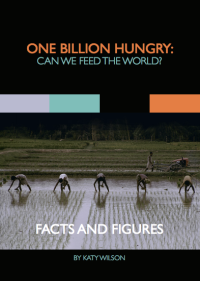This week’s summary on the news stories, reports and blogs that have grabbed our attention. We welcome your thoughts and comments on these articles.
Can greater transparency help people hold big corporations to account? Some new tools that may help, From Poverty to Power
S&T Committee Urges Change to EU Rules for GM Crops, ISAAA
New Project Announced – Global Food Security by the Numbers, Global Food for Thought
Public procurement in Africa benefitting family farmers and schools, FAO
Eight Ways Monsanto Fails at Sustainable Agriculture, Union of Concerned Scientists
Biodiversity or GMOs: Will The Future of Nutrition Be in Women’s Hands or Under Corporate Control?, Institute of Science in Society
Will Food Sovereignty Starve the Poor and Punish the Planet?, Independent Science News
Limits Sought on GMO Corn as Pest Resistance Grows, The Wall Street Journal
Farmers Put Down the Plow for More Productive Soil, The New York Times [Read more…]









